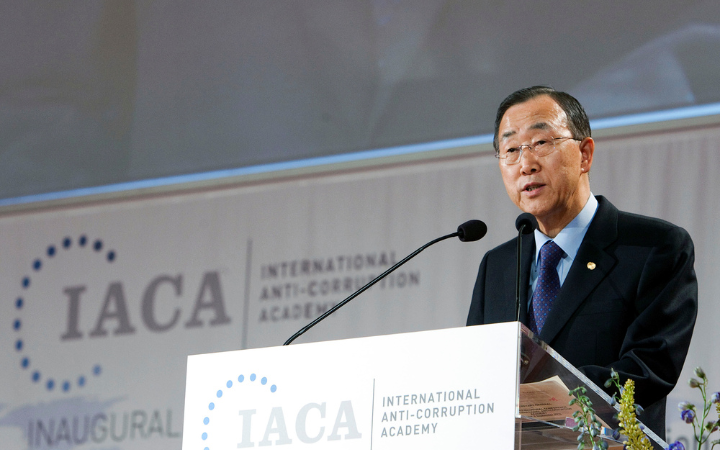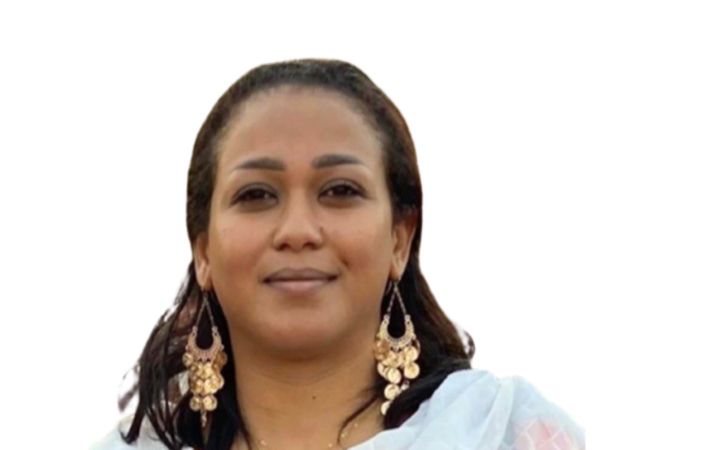The United Nations Institute for Training and Research (UNITAR) and the International Anti-Corruption Academy (IACA) are delighted to collaboratively launch the new edition of the innovative Executive Diploma in Anti-Corruption and Diplomacy (EDACD).
This programme is specifically tailored to explore the intricate connections between Multilateral Diplomacy and Anti-Corruption endeavors in our increasingly interconnected world. This modular training is conveniently conducted online, over the course of five months, offering a unique opportunity to gain valuable insights into anti-corruption and diplomacy. Participants will explore both practical and theoretical approaches while building a strong network of like-minded professionals. The programme encompasses a wide range of interdisciplinary subjects, including international relations, ethics, cyber diplomacy, negotiation skills, journalism, and more.
In order to be considered for the Executive Diploma in Anti-Corruption and Diplomacy, candidates must be fluent in English, possess a valid passport or national identity card, and have completed an undergraduate degree.
GENERAL INFORMATION
Programme Dates: April - August
Application Deadline: Rolling
Fee: 2,821.00 EUR
Modality: Online, Self-paced with interactive sessions for each module
Duration: Six months
For more information, please email diplomacy@unitar.org
APPLICATION PROCESS
To Apply: Kindly send an email to diplomacy@unitar.org with the following documents:
- Your updated CV;
- A copy of your valid passport or national identity card;
- A copy of your Bachelor's degree certificate in English;
- Your motivation letter (maximum one page).
After receipt of these documents, your application will be carefully considered.
OBJECTIVES
At the end of the programme, students will be able to:
- Comprehend international anti-corruption standards and their implementation, as well as the nexus between diplomacy and anti-corruption;
- Contribute to the prevention of and the fight against corruption;
- Develop, strengthen and use diplomatic skills such as cross-cultural communication, negotiation and similar;
- Interact with and develop a strong network of international professionals;
- Apply acquired skills, knowledge and tools in their respective careers and fields of work.
METHODOLOGY
The programme is conducted exclusively online, utilizing self-paced learning, instructor-led and interactive sessions, discussion forums and case studies, taking advantage of interactive tools to encourage participants towards taking active part and offering them the opportunity to learn from outstanding experts and teachers in anti-corruption and diplomacy.
Jack Williams - Lecturer, Executive Diploma in Anti-Corruption and Diplomacy, President of the Institute for Global Negotiation;
"What I particularly appreciate about the UNITAR/IACA Executive Diploma in Anti-Corruption and Diplomacy is how the programme's interactive design fosters an environment where participants can share their experiences and learn from one another. By reflecting with one another, the participants can better understand how to apply practical and theoretical insights to their own work."
ALUMNI TESTIMONIAL
The Executive Diploma in Anti-Corruption and Diplomacy is designed as an in-career programme for professionals and young professionals with a background in International Relations, Diplomacy, Anti-Corruption, or any related field, who are part of or wish to join a governmental organization, non-governmental organization or international organization involved in the field of anti-corruption or other areas where corruption may be a challenge.
Zainab Abdalla - Alumna, Executive Diploma in Anti-Corruption and Diplomacy - Mechanical Engineer, Global Negotiation;
"My experience with the Executive Diploma has been transformative. It has equipped me with the knowledge, skills, and networks to navigate the complex landscape of anti-corruption efforts and diplomatic initiatives. I am deeply grateful for the opportunity, and look forward to translating my learning into tangible positive outcomes in the realm of international relations.”




